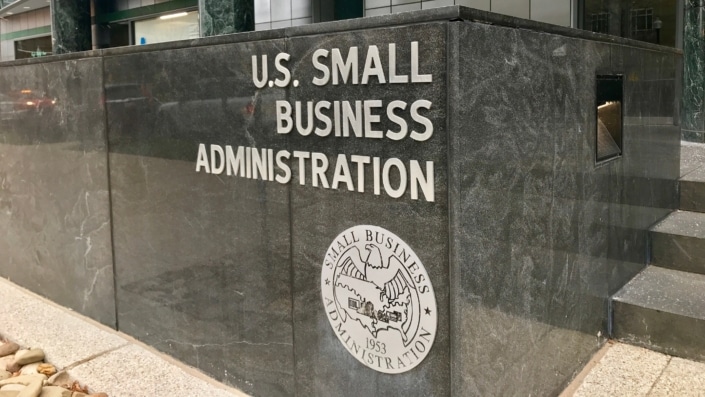Financing to Consolidate Business Debt
Debt can be a burden for any small business owner, especially when you have multiple forms of high-interest debt that you have to keep track of and that could slow down your cash flow. One of the ways to simplify this problem is to take out financing to consolidate your debt and, hopefully, save you money by lowering the interest and fees you are paying on your existing debt.
Why Consolidate Debt?
There are two general reasons you would want to consolidate your business debt. The first one is to save money on interest rates and fees. If you are paying high interest rates on a business credit card and a working capital loan, for example, you should consider consolidating those debts into a lower interest-charging business line of credit or loan. This will save you a significant amount of money on the cost of capital and fees.
The second reason is to simplify. If your business is on the hook for multiple sources of debt such as business credit cards, equipment financing, and working capital loans, your life as a business owner could be made much simpler (and more affordable) if you consolidate those into one financing option and one debt payment.
What are the Best Financing Options for Debt Consolidation?
Before you dive into the question of whether you should consolidate your debt, it’s important to know which financing options generally offer the lowest interest rates and the terms that go along with them Those options are:
SBA 7a Loan
An SBA 7(a) loans are offered by authorized lenders that include traditional banks and alternative lenders. These loans are backed by the US Small Business Administration and typically offer the lowest interest rates. Much like a bank loan, these loans provide a lump sum of cash upfront in exchange for a pre-agreed upon monthly payment.
7(a )loans generally require excellent credit scores and a lot of paperwork as part of the application process. If you have an existing bank loan and believe you may qualify for a 7a loan, this could save you money on interest payments,
Traditional Loans
A traditional loan – or term loan – is offered by both alternative lenders and traditional banks. These loans are much like SBA 7(a) loans but typically charge slightly higher interest rates. A traditional loan is a good option if you are seeking to consolidate debts such as an outstanding balance on a business line of credit and a business credit card or equipment loan.
Business Line of Credit
A business line of credit gives you access to a predetermined credit line and only charges interest on what you borrow. The interest rates for business lines of credit are generally higher than traditional loans and SBA 7(a) loans, but this could be a good option if you’re seeking to consolidate outstanding balances on high-interest business credit cards and working capital loans.
What Factors Should You Consider Before Consolidating?
There are multiple financing options to choose from if you have multiple forms of high-interest debt, which may include business credit cards, business lines of credit, or equipment financing. If you are thinking of consolidating your debt, however, there are several factors to consider:
Have interest rates gone down?
Interest rates on your loans and business lines of credit are strongly dependent on the federal funds overnight rate, which can be changed 8 times a year by the US Federal Reserve Bank. If the rate has gone down since you took out your traditional loan or business line of credit, you may want to consolidate to save money on the cost of capital.
Which business financing options have the most favorable interest rate?
There’s little point in consolidating your debt if it’s not going to save money. If you’re paying high interest rates on debt products such as business credit cards or working capital loans, you should consider consolidating that debt into lower interest rate products such as traditional business loans, SBA 7(a) loans or business lines of credit.
What type of financing products offer you the most flexibility?
If you’re looking to consolidate your debt, carefully consider what type of flexibility you are looking for in terms of repayment options. For example, a business line of credit is a highly flexible tool in terms of when you can borrow, but it may have a stricter repayment requirement than a traditional loan or SBA 7(a) loan. Consider the type of flexibility that best serves your needs.
Have your credit scores improved enough to notch a lower interest rate?
As a small business owner who requires debt to operate your business, you should always keep a close eye on both your FICO and business credit scores. If you have an outstanding bank loan or business line of credit and your credit score has improved since you took them out, you may want to consider debt consolidation as you may be able to notch a lower interest rate.
How will you adjust your business spending once you’ve consolidated your debt?
If you’re looking to consolidate your debt, it’s important to plan on how you’re going to manage that debt afterwards. For example, in your personal life, if you consolidate the debt on your high-interest credit cards into a lower-interest-rate personal loan, but afterward you keep spending on those credit cards, your debt is going to once again become unmanageable. The same thing applies when you consolidate your business debt. If you consolidate your debt on a business line of credit or business credit card into a traditional loan, for example, it’s important to make sure your debt stays manageable afterwards by limiting your spending on your card or business line of credit.
What are the Pros and Cons of Consolidating Debt?
If you’re seeking to consolidate your business debts, you should carefully weigh the pros and potential cons of doing s0.
Pros of business debt consolidation
- Saving money. If done correctly, consolidating your business debts can substantially lower the interest rate you’re paying on your debt. Lower interest payments can improve your cash flow and free up money to use on other parts of your business.
- Improving Your Credit Score. By consolidating your debts, you’re effectively zeroing out the balances on any outstanding debts you may be carrying into one debt, which will improve your credit score, and credit bureaus generally don’t look favorably on too many outstanding debts.
- Simplifying Your Payments. As previously stated, having to manage multiple debts can become a burden. Simplifying your debts into one payment can save you time and headaches.
Cons of business debt consolidation
- The payment period could be longer. If you’re seeking to consolidate your debt intoa loan, the time it takes to pay off your debt could become longer, depending on the terms of the bank or 7(a) loan.
- The payment amounts could increase. Consolidating your debts into one financing option could increase the amount you owe every week or month, even though you’d be paying a lower interest rate. For example, while high-interest credit card debt isn’t pleasant, credit cards typically allow you to make a minimum monthly payment, whereas the monthly payment on a loan is a fixed amount.
Carefully Consider Your Options
Consolidating debt could save your business a significant amount of money if you are stuck with multiple, high-interest debts. However, it’s important to carefully consider what your options are when consolidating your debt, and which financing options offer you most flexible payment options and interest rates.




